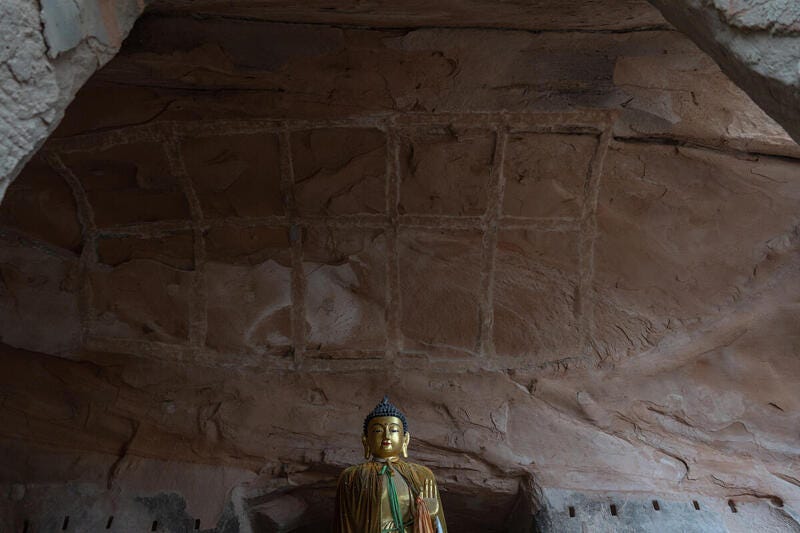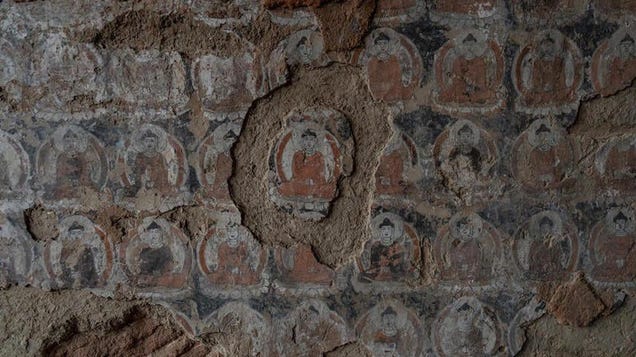Buddhist murals in China that date back to the 4th century are being threatened by heavy rain and rapidly fluctuating humidity, Greenpeace experts said on Monday.
Art in the the Dunhuang cave temples and at historical sites in Zhangye, both in the northwestern province of Gansu, are under threat from increased heavy rainfall. The region is historically dry, which has preserved a lot of the ancient art and structures. Dunhuang is home to the Mogao Caves, a UNESCO World Heritage Site. The caves hold more than 40,000 square meters (430,550 square feet) of murals and thousands of painted statues that date from the year 400 to the 1400s. Artifacts in nearby Zhangye include cave temples that are national heritage sites, according to Greenpeace.
The temples and ancient art have withstood over a thousand years, but climate change has challenged their continued existence. Overall rainfall in the Gansu region has decreased since 2000, but that has been replaced with increased instances of extreme rainfall. Rainwater has seeped into some of the structures, damaging them. Murals have begun to crack and even flake and detach from the foundation, according to Greenpeace.
During a meeting in Beijing earlier this week, climate scientists and conservation experts from the Dunhuang Research Academy discussed how weather shifts caused by climate change in Gansu were hurting the historic sites.

“Gansu is famous for its caves and the art stored inside them for centuries. Increased bouts of rainfall in the desert pose an acute risk. Spikes in humidity, flash floods, and cave-ins are already happening,” said Li Zhao, a senior researcher in the Greenpeace Beijing office.
Researchers in China are conducting a cultural heritage survey throughout the country to protect important historical sites from further damage. But Li has warned that some could already disappear by the time the ongoing survey is completed. “They’re dissolved before our very eyes. This is a painful reality of the impact of climate change,” Li said, according to Greenpeace.
Sadly, climate change is threatening historical sites all over the world. Peatlands throughout the United Kingdom, which are waterlogged ecosystems that have little oxygen, naturally preserve different types of organic materials. The lack of oxygen has stopped leather, textiles, and even human remains from decomposing for hundreds or even thousands of years. Some of the preserved sites hail back from before the Roman era. But as the UK becomes hotter, and weather around the world changes, some of the peatlands are drying out and exposing heritage sites that were once protected from the elements.
Other human history sites are in danger of disappearing due to the climate crisis. The frozen body of a Iñupiat girl that is about 800 years old in what is now Alaska, was once preserved in the permafrost. But as global temperatures continue to rise, that permafrost is now melting and unveiling what were once protected archeological sites.
Want more climate and environment stories? Check out Earther’s guides to decarbonizing your home, divesting from fossil fuels, packing a disaster go bag, and overcoming climate dread. And don’t miss our coverage of the latest IPCC climate report, the future of carbon dioxide removal, and the un-greenwashed facts on bioplastics and plastic recycling.
